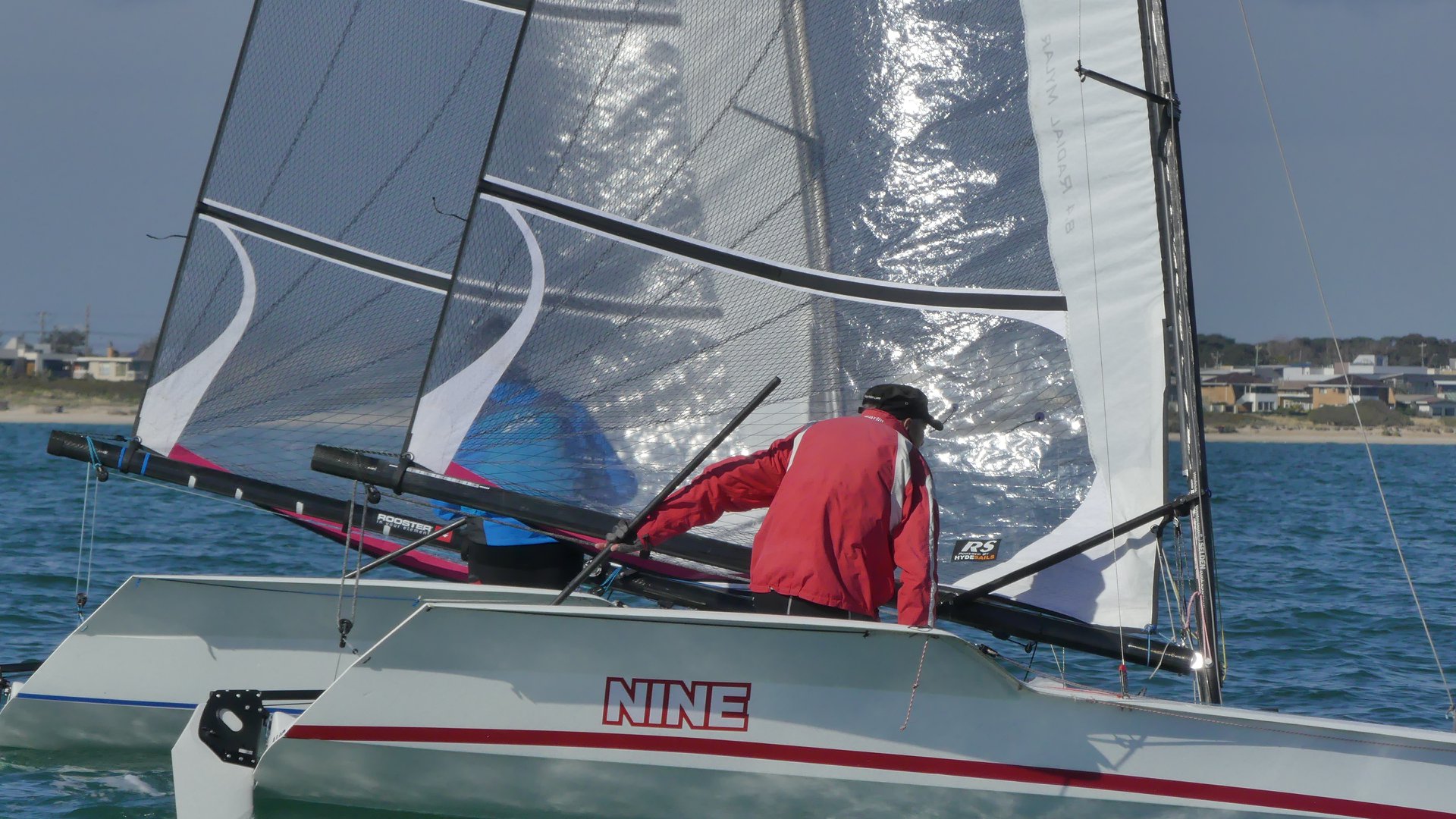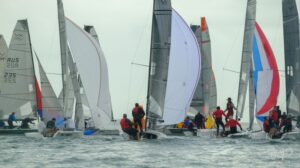

Psychology and Sailing – Thanks to mate Andy Rice of the Sail Juice newsletter for the next couple of paragraphs highlighted in italics.
When I read these, the folly of continuing to seek and then pay for the latest gear to give me an edge suddenly became apparent.
“In one-design racing, where your equipment is the same as everyone else’s, there are only two ways to beat your opponent – through superior physiology (your size, weight and fitness) or through superior psychology (just about everything else!).
Psychology is perhaps one of the most neglected parts of sailing – it’s always easier to mess around with your boat than with your mind, isn’t it!
Sorting out the way your mental approach and the attitude you bring to your racing is one of the most effective ways of improving your results on the water.
Learning new mental skills will do you more good than buying a fancy new tapered mainsheet or auto-ratchet. What’s more, these skills will never wear out, and they won’t cost you a penny either!”
Another great attribute of top sailors and champions is a Never Say Die attitude.
No matter how bad things get during a race, the best sailors do whatever it takes to get the job done.
There is a great reason for this, and that is, until the gun fires to greet the winner, anything can happen.
One of the skills of any elite athlete is the ability to set a goal.
Setting lofty goals is important, but it’s the process of achieving that goal that yields success or failure and your enjoyment of the process.
“Perfection is not attainable, but if we chase perfection, we can catch excellence.” – Vince Lombardi
If I am the closest to perfection, I will win, right? It is a dangerous mentality that often leads to unhappiness and can actually stop progress towards a goal.
A sailor with a perfectionist mindset is focused on the outcome, not the process.
These athletes tend to place unreasonable demands on themselves and are quick to criticise failures, which ultimately causes them to avoid failure altogether.
The perfectionist views other competitors and coaches as potential critics and therefore tends to avoid feedback.
Following is a list of the attributes needed for a sailor pursuing excellence:
- Focus on the process of the task rather than the outcome.
- Value themselves separately from the achievement. Based on the willingness to try rather than whether the goal was achieved.
- Set realistic but challenging goals that are clear and specific.
- Be willing to examine performance and personal vulnerabilities to improve.
- Focus on achieving goals to attain personal satisfaction rather than the need of others to recognise their success.
- Be prepared to risk failure because of the benefits that occur from taking a risk.
- Recognise that change occurs with consistent effort over time. Have the patience to continue pursuing goals even when there is no immediate change.
- Finds enjoyment and satisfaction in the pursuit of goals.
Final thoughts
Many sailors leave no stone unturned about their equipment, their practice of technique, and even their physical conditioning.
They seek help to accomplish this from sailmakers, coaches, and strength and conditioning trainers, and yet some stubbornly pursue improvement of their mental game on their own.
I have just finished reading the “Inner Game of Tennis” by W. Timothy Gallwey. Although it is written about an unrelated sport, the psychological aspects are easily transferable to sailing.
We can’t tackle the psychological aspect of our sport on our own, and books like this increase our learning.

